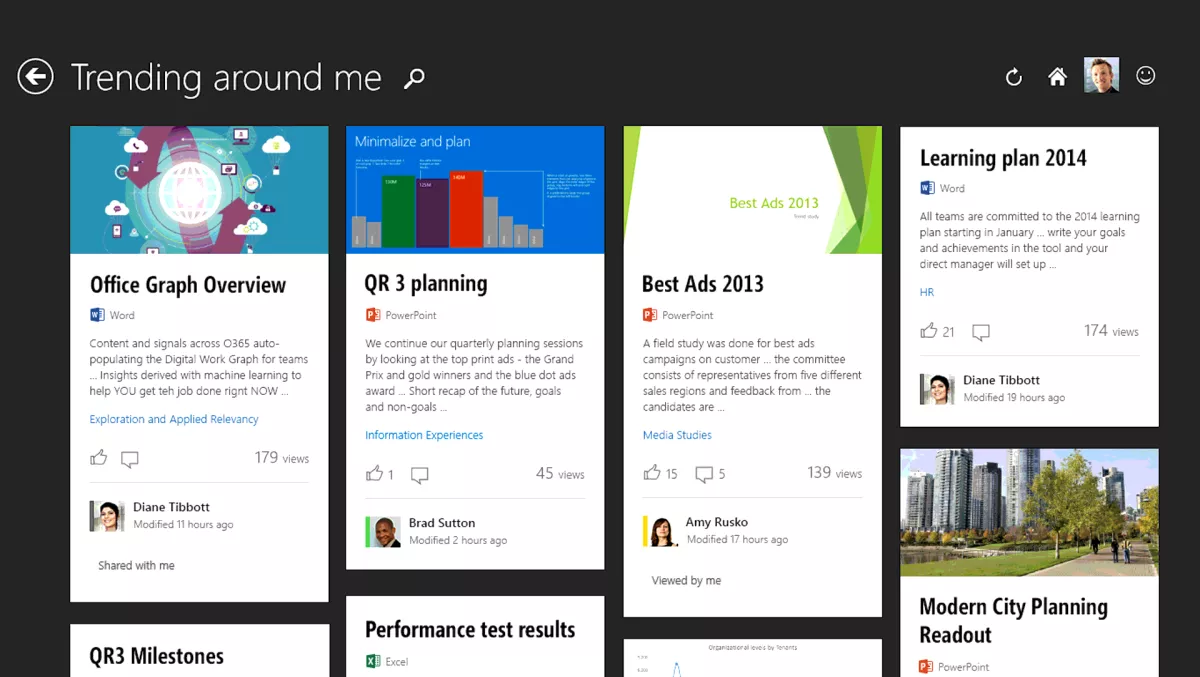
Think search, now reverse that thought.
Search, such as engines Google and Bing, functions through dictation - a reactionary process to the individual needs of the user.
Delve however, by design, does the opposite.
While Microsoft’s latest Office 365 app searches frantically behind the walls of business interaction, it does so without command - making intelligent use of the vast streams of data businesses are currently sitting on.
“Delve drives discovery and is a central product in executing Microsoft’s cloud-first, mobile-first strategy,” says Chris Johnson, Group Product Manager on the Office 365 team, speaking at Microsoft’s New Zealand SharePoint 2014 conference in Auckland.
A Redmond-based Kiwi, Johnson told the audience Delve offers new ways to search and discover content across the Office 365 platform - a service which provides personalised insights based on machine learning.
Codenamed Oslo, Delve is technically not new to the market, with Microsoft announcing the newest member of the Office 365 family in March this year, with the app set to be released to all enterprise sku customers before the end of this year.

A few years in the making, Johnson told TechDay that Delve’s roots lie in fast search, utilising Microsoft’s acquisition of Fast in January 2008.
“Delve is about discovering what might be interesting to you,” he added. “Things pop up in user’s feeds that are interesting but they wouldn’t normally find otherwise.”
Keen to stress that the app provides “valuable information” not data for data sake, Johnson claimed Delve is only the first app of Microsoft’s plans to transform how businesses operate, echoing CEO Satya Nadella’s plans for a mobile-first approach going forward.
“We certainly don’t think Delve is the be all and end all solution but with the power of Office Graph combined with this app experience, Delve is simply the beginning,” he added.
Alluding to the shift in culture and the subsequent impact on IT departments across the world, which now operate to the whims of always connected employees, Johnson believes Delve connects people through people.
“IT departments have to allow mobility to happen to stay at the forefront of hiring the smartest and best people in business,” he added.
“Organisations are adopting and changing and the trend is they now have to become more agile to hire the top talent and allow them to work when and where they need to.
“Not long ago you’d have to go to work to receive your email, which sounds like a completely foreign thought nowadays.
“Change is happening and Delve is one aspect of this.”
With Delve, staff can find anything they need by simple remembering a person’s name - which proves to be a lot easier than trying to recall a document name or keyword.
“This change, connecting to content through people, hints at something truly transformative: a new way to staying “in the know” about what’s around you,” said Ashok Kuppusamy earlier this year.
Kuppusamy is the group program manager in the FAST engineering team based in Norway, hence the codename Oslo.
“For most people, there’s so much information flowing within your work network that it’s hard to have visibility into what is going on around you.
“For example, say that you need to find the document that your colleague Dan worked on and it’s about the topic of learning.
“If just type “learning” into any search engine today, you’ll get way too many results because the word “learning” is in tons of documents.
“With Delve, you can just type “Dan” in the search box. This takes you to Dan’s page in Delve where you can see the documents and people Dan has been working with.
“Of course, you can only see the documents that you have access to.”

For more information about Delve click here